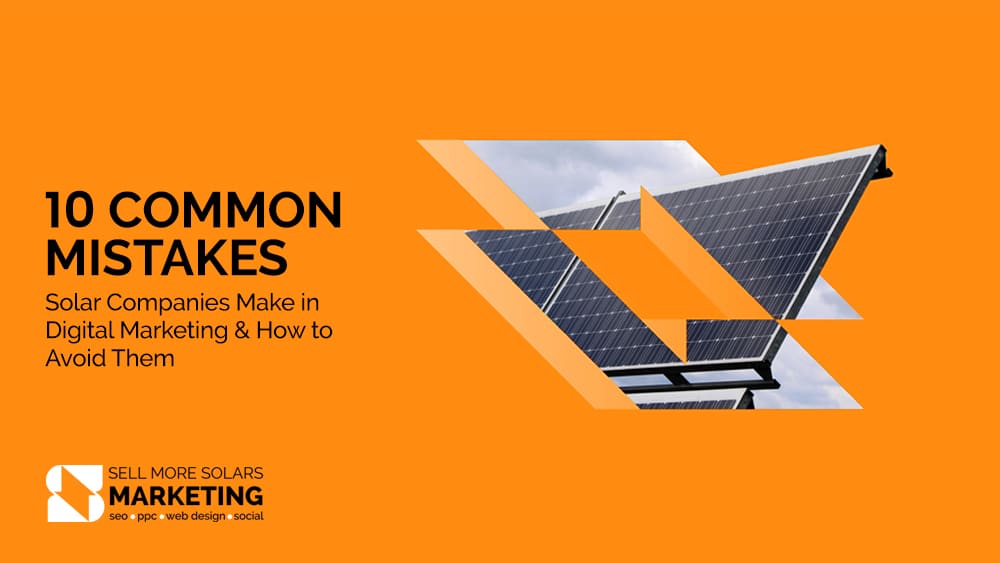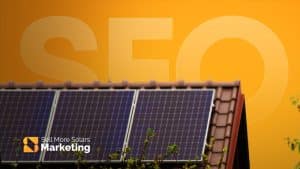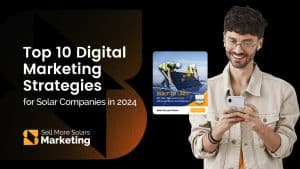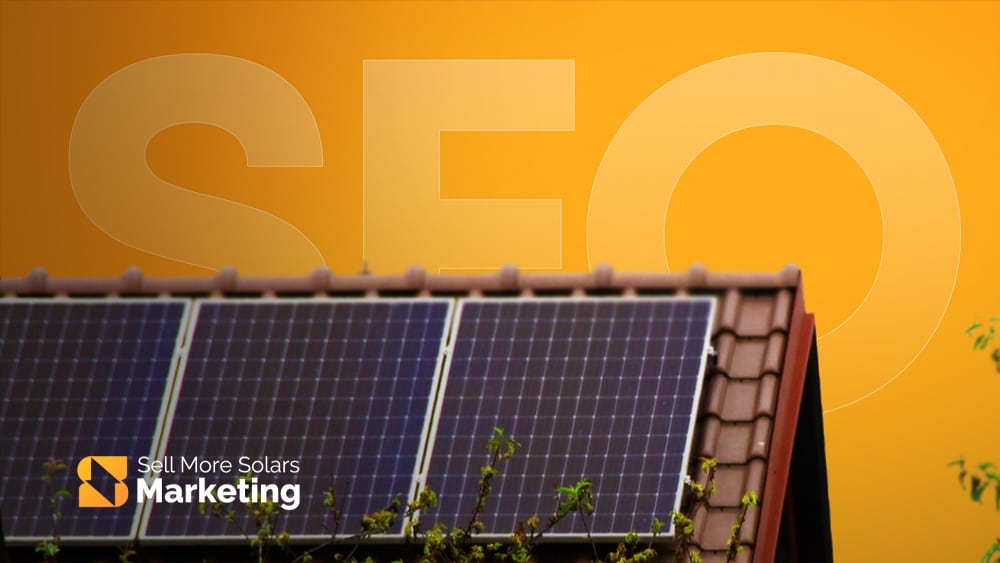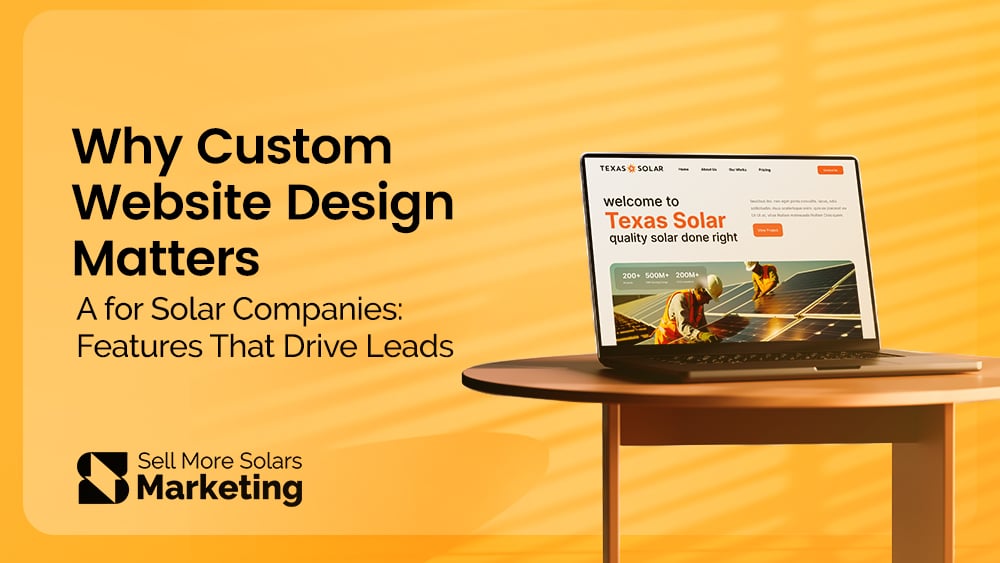Solar companies are navigating a competitive market where digital marketing can either accelerate their success or hold them back. Many businesses unintentionally commit solar marketing mistakes that reduce their visibility, hinder customer engagement, and limit lead generation. By understanding these mistakes in detail and learning how to avoid them, solar companies can develop effective marketing strategies that drive growth. Let’s discuss each mistake and explore actionable solutions.
Common Solar Marketing Mistakes
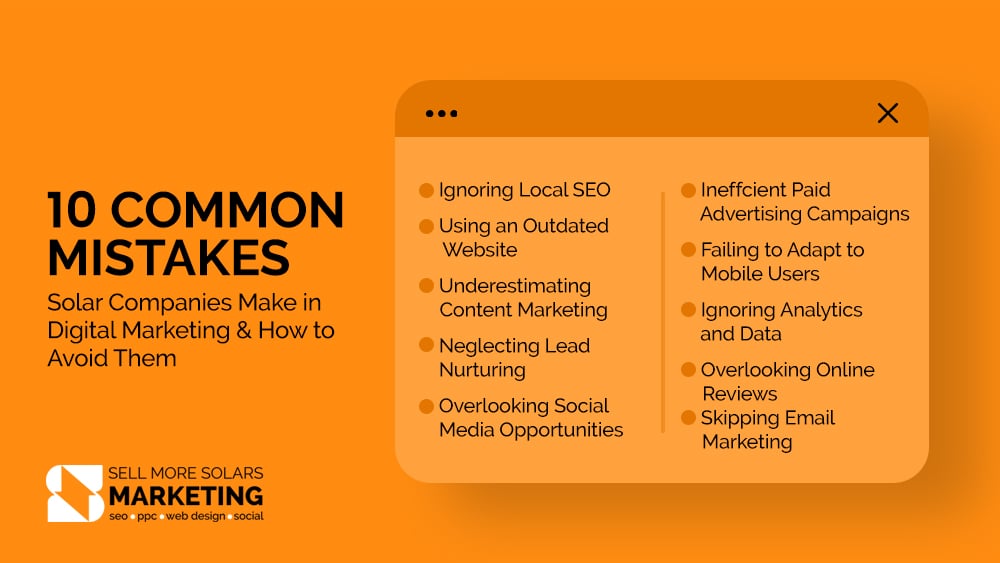
In the evolving solar industry, digital marketing plays a vital role in helping companies gain visibility, generate leads, and drive growth. However, many solar companies unknowingly fall into traps that hinder their marketing effectiveness. These solar marketing mistakes limit visibility and also reduce customer engagement and impact long-term success. Understanding these common mistakes and how to avoid them can give your business the competitive edge it needs to thrive in an increasingly crowded market. Below are the most common solar marketing mistakes and actionable solutions for each.
1
1. Ignoring Local SEO
Local SEO (Search Engine Optimization) helps solar companies connect with nearby customers searching for services online. Neglecting local SEO means your business won’t appear in local searches, resulting in missed opportunities.
Most solar installations are location-specific, so prospective customers often search for “solar companies near me” or “solar panel installers in [city].” Without local SEO, your solar company won’t rank in these critical searches. Google Business Profile is also essential, as it shows reviews, directions, and business details.
How to Fix It:
- Claim and Optimize Google Business Profile: Include accurate business details, service areas, photos, and customer reviews.
- Target Local Keywords: Use phrases like “solar installation in [city]” on your website and blogs.
- Create Local Content: Publish articles tailored to the unique energy needs or policies of your area.
2. Using an Outdated Website
A dated website is more than just an eyesore; it reflects poorly on your business and can drive potential leads away. Your website is often the first impression customers have of your business. If it loads slowly, isn’t mobile-friendly, or has confusing navigation, visitors will leave, increasing your bounce rate and lowering your search engine rankings.
How to Fix It:
- Update Design and Functionality: Invest in a clean, modern design that reflects professionalism.
- Improve Load Times: Compress images, use faster hosting services, and reduce unnecessary scripts.
- Mobile Optimization: Ensure your website is fully functional and visually appealing on smartphones and tablets.
3. Underestimating Content Marketing
Solar companies often overlook content marketing, missing the chance to educate and engage their audience. Content marketing builds trust and positions your company as an industry leader. Informative blogs, videos, and guides answer common customer questions about solar energy, such as costs, benefits, or installation processes. Without valuable content, your website becomes static and less likely to rank on search engines.
How to Fix It:
- Create Informative Content: Write blogs about the financial benefits of solar, government rebates, or energy-saving tips.
- Use Various Formats: Explore video tutorials, case studies, and infographics.
- Optimize for SEO: Research keywords and ensure your content is optimized to rank in search engines.
4. Neglecting Lead Nurturing
Generating leads is just the beginning; failing to nurture them is a costly mistake that can result in lost opportunities. Not all leads are ready to buy immediately. Some prospects need education and reassurance before making a decision. Without a strategy to nurture leads, your potential customers might lose interest or turn to competitors.
How to Fix It:
- Implement CRM Software: Use tools like HubSpot or Salesforce to manage and track leads effectively.
- Send Follow-Up Emails: Share information about solar benefits, financing options, or installation processes.
- Provide Social Proof: Highlight reviews, testimonials, and case studies to build trust.
5. Overlooking Social Media Opportunities
Social media is a powerful platform for engagement, but many solar companies fail to take full advantage of it. Platforms like Facebook, Instagram, and LinkedIn allow businesses to connect with their audience, show projects, and build brand awareness. Ignoring social media can mean losing out on a significant share of potential customers.
How to Fix It:
- Post Regular Updates: Share success stories, solar tips, and news about your company.
- Engage with Followers: Respond to comments and direct messages to build trust.
- Leverage Ads: Use social media advertising to target specific demographics and geographic locations.
6. Inefficient Paid Advertising Campaigns
Paid advertising can deliver quick results, but poorly managed campaigns often lead to wasted budgets and low returns. Inefficient campaigns fail to reach the right audience or convey the right message. Overlooking data, targeting irrelevant audiences, or using vague calls-to-action (CTAs) results in poor conversion rates.
How to Fix It:
- Define Clear Goals: Decide whether the campaign aims to generate leads, drive traffic, or boost brand awareness.
- Target Specific Audiences: Narrow your audience based on location, age, interests, and behavior.
- Monitor Performance: Use analytics tools to track performance and make adjustments.
7. Failing to Adapt to Mobile Users
Mobile devices dominate web traffic, and failing to cater to mobile users can alienate a large portion of your audience. Websites or landing pages that are difficult to navigate on a smartphone discourage visitors from engaging. Mobile optimization ensures seamless experiences for users regardless of their device.
How to Fix It:
- Test Mobile Compatibility: Regularly check how your website performs on mobile devices.
- Optimize Forms: Make forms easy to fill out on small screens.
- Use Clear CTAs: Ensure buttons and links are easy to click on mobile devices.
8. Ignoring Analytics and Data
Digital marketing campaigns without proper tracking are essentially flying blind. Analytics tools like Google Analytics provide insights into what’s working and what isn’t. Without data, you might continue investing in ineffective strategies while ignoring successful ones.
How to Fix It:
- Set Up Analytics Tools: Use platforms like Google Analytics and Facebook Insights.
- Monitor Key Metrics: Track website traffic, lead conversions, and campaign ROI.
- Regularly Review Data: Analyze performance reports to refine strategies.
9. Overlooking Online Reviews
Online reviews influence customer decisions, and neglecting them can harm your reputation. Positive reviews act as social proof, building trust with potential customers. Negative reviews, if left unaddressed, can deter prospects. Engaging with reviews shows customers you value their feedback.
How to Fix It:
- Ask for Reviews: Encourage satisfied customers to leave feedback.
- Respond to All Reviews: Thank customers for positive reviews and address complaints professionally.
- Feature Reviews: Highlight glowing testimonials on your website and marketing materials.
10. Skipping Email Marketing
Email marketing remains a cost-effective way to nurture relationships and drive repeat business, but many solar companies overlook its potential. Email marketing drives three times more conversions than social media, with email-driven customers spending 17% more. A well-executed email campaign can educate customers, promote special offers, and keep your brand top-of-mind. Ignoring email marketing leaves a gap in your communication strategy.
How to Fix It:
- Build an Email List: Collect emails through website forms, events, and gated content like downloadable solar guides.
- Send Valuable Content: Share tips, project updates, or financing options.
- Segment Your Audience: Tailor content based on where leads are in the buying process.
Conclusion
Digital marketing is important for solar companies, but avoiding these common mistakes is just as important as implementing the right strategies. From local SEO to content marketing, lead nurturing, and email campaigns, addressing these solar marketing mistakes can significantly enhance your company’s online presence and lead generation efforts. Stay data-driven, focus on engaging content, and adapt to changing customer behaviors to stand out in the competitive solar industry. When done right, digital marketing can turn your solar business into a trusted leader in the market.

